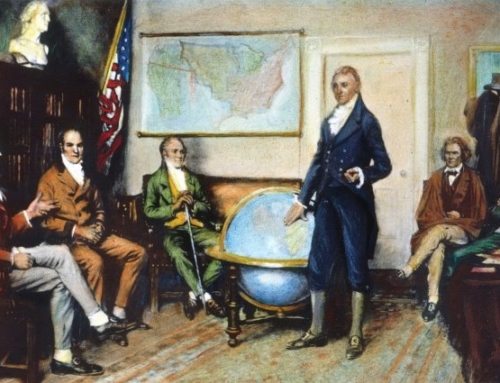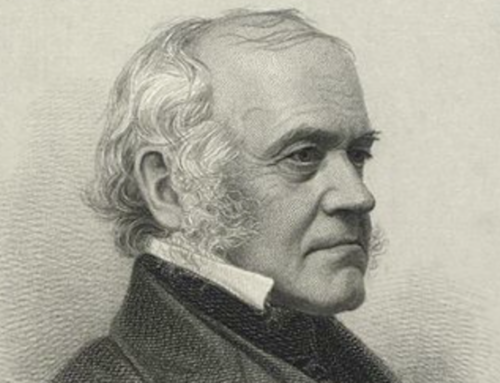Long have political theorists argued that people naturally congregate with the similarly-minded. We haven’t seen yet a large-scale, purposeful internal migration based primarily upon cultural and religious beliefs, but in our current polarized society, overwhelmed with growing social chaos, it appears that we are about to.

As Americans, we are accustomed to a variety of contemporary migration patterns.
Business owners in blue states often sell their businesses and then retire to Florida’s more friendly tax environment. For those blue-state business owners who are tired of high taxes but still have a desire to keep growing and flourishing, they often move their companies or significant portions of them to states such as Texas, Georgia, or the Dakotas.
Meanwhile, border states like California and Arizona have become numb to decades of legal and illegal migration from Latin America. A steady flow of immigrants from the Middle East and Africa has also become a norm in the last few decades.
In Minneapolis and other cities plagued with riots and exponential increases in violent crime, we’re starting to see the core cities abandoned by businesses and individuals of all stripes. People are fleeing for safety.
What we haven’t seen yet is large-scale, purposeful internal migration based primarily upon cultural and religious beliefs, not economic interests. In our current polarized society, overwhelmed with growing social chaos, it appears that we are about to see it.
Earlier this week my wife and I celebrated our 19th wedding anniversary by taking a short trip out to Rapid City, South Dakota and the Black Hills. I always enjoy speaking with the locals and finding out what’s happening in an area. You can learn a lot and often patterns become visible if you speak with enough people.
One priest reported to me that he has been contacted by dozens of families looking to flee blue-state metros and their cultures to what they believe will be safer territory for them to raise their families as conservatives and Christians. So far, twenty of those families are committed to the move, coming primarily from Minnesota, Illinois, and Washington.
He wasn’t alone in reporting the changes. Servers at restaurants, cashiers, people on the street, a police officer, and a realtor all reported to me that there is a significant influx of political and religious refugees coming to South Dakota.
The point was thoroughly hammered home when my wife and I met up with a college buddy from Washington state who happened to be in the area. He wasn’t there for tourism; he was there to scout a possible move from the chaos of Seattle and the political forces dominating Washington state.
Moving isn’t easy. Uprooting your family and moving to a new area is even harder. Nonetheless, the discussions taking place among many conservatives and Christians seem to indicate that the costs and sacrifices involved in such a move are worth it.
Long have political philosophers and conservative theorists argued that people naturally congregate with similarly minded people—birds of a feather flock together. Quite often they also argued that America would eventually see people of like minds purposefully clustering together as social chaos grows and the managerial state increases its power. It may very well be that their prophetic warnings are about to come true in the coming years.
Godspeed!
Republished with gracious permission from Intellectual Takeout (July 2020).
The Imaginative Conservative applies the principle of appreciation to the discussion of culture and politics—we approach dialogue with magnanimity rather than with mere civility. Will you help us remain a refreshing oasis in the increasingly contentious arena of modern discourse? Please consider donating now.
The featured image is courtesy of Pixabay and has been enhanced.







We were just in Rapid City a few weeks ago on family vacation. Wonderful place (at least in the summer). It’s a bit farther east than I’d like to move but I can attest that my family is actively looking to move from Washington State (Seattle). And any move we make is definitely NOT in my economic interest and would be a significant risk. But we’ve had it with Seattle and the left coast. Idaho, Montana and Wyoming are at the top of the list. Utah is also a possibility.
For anyone rearing a family, it will be either move or throw the children to the wolves, and no good parent is going to want to go the latter route. We may even see a breakup of the country along rural vs. conservative lines, at least until the smoldering flames of the cities have died down and the last burning embers are quenched and it’s safe for cities to be recolonized. It may not even be that simple in the end, though, because the ideologues are never content to have any dissent; the same way they hound the Little Sisters of the Poor, they’ll follow the sane people into the countryside and persecute them there.
We saw this division in the U.K. years ago. However things don’t seem to have improved much there. I guess you can’t move away from the problems. They just seem to tag along.
My wife and I moved out of London nine years ago, 85 miles east to Thanet on the coast. We’ve found traditional, basic sanity and a community friendliness and togetherness far removed from the elite know-it-alls of the melting pot capital, and haven’t looked back. Thanet was solidly in favour of leaving the EU, by the way.
One hopes that newly migrated families will have learned some humility, not think themselves better than their new neighbors, and not bring with them the same values that led to the decline of the areas from which they escaped.
Precisely! Leave your politics in the hell hole you are leaving and do not attempt to turn where you move into where you came from.
Not the case here in my beloved Georgia. We are being over run by Northeast Coast Democrats. They are bringing with them all their horrid lifestyles. For some reason the boys at the Capitol think this is a great thing. To bad they haven’t read the Fable of the frog and scorpion.
Will they never learn? Flee one state, move to the next. Same problems will follow you as you bring your same voting habits with you. Run from the liberal hell you helped create. Turn the nice conservative state you are fleeing to into that same liberal mess you are running from. They have almost destroyed Arizona.